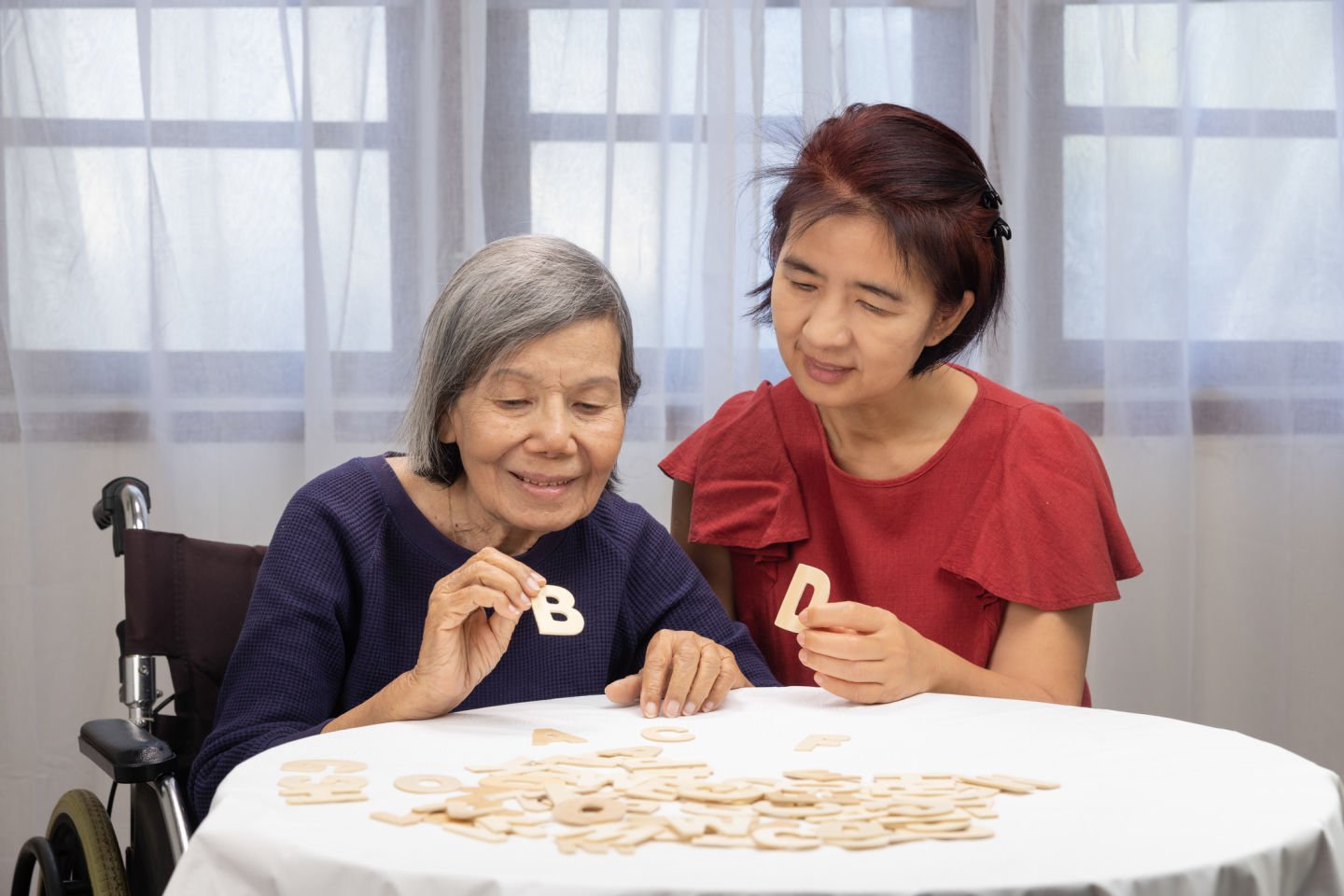This dementia village could be your neighbourhood
A new model of housing may change the way we care for dementia patients.

Helping people live longer and happier
Lyn McGaurr's father Darcy spent his final year in an aged care home that was not well adapted to care for people living with dementia.
He had enjoyed visiting his local library and playing chess with a friend before he moved into aged care, but once there he struggled to cope with loud noise from televisions and with low staffing levels at night.
Ms McGaurr says her father would have benefited from services that used dementia-inclusive principles.
“His experience of being in care might have been a much more positive one and he might even have lived longer than he did.”
Often the solution to dementia is to accommodate those people who have the disease in isolated facilities, shut off from the outside world and everyday services.
While it is understandable that many people with dementia need care, safety and protection, often from each other, the institutional model has been found to be dehumanising with little restorative effect.
Dementia Australia says too often, services and facilities, including in aged care, are not designed in ways that help people living with dementia.
“Unfortunately, what we do hear from people living with dementia and their families and carers is that there aren’t enough dementia-specific accommodation models for them, or indeed staff who understand dementia,” Dementia Australia’s executive director of research and advocacy Kaele Stokes says.
As is the case with older people in general, many people living with dementia want to remain in their own homes, which in most cases are not dementia care-friendly in design and purpose.
Advocates for better dementia-friendly built design say it can make a real difference, offering residents independence and more autonomy.
The Korongee village in the northern Hobart suburb of Glenorchy offers those amenities. Its supporters claim it is a game-changer in the way we accommodate people living with dementia and offers a model for more suitable accommodation.
The village was designed using dementia-inclusive principles. Houses, each a different colour with a distinctively painted door, line four cul-de-sacs.
There's a general store, a cafe, a hair salon and medical practice, a community centre, and many seats but no stairs.
Gently sloping paths lead to the houses, in which lighting mimics the cycles of the sun.
Inside the homes, there are memory boxes for familiar items on each bedroom door and the toilets are a different colour from the rest of the bathroom to make them stand out.
There is also a sensitive approach to matching housing to the person. In collaboration with the University of Tasmania, the operator, Glenview, has developed a questionnaire which guides this process.
The questionnaire results match the person to the most appropriate household that is most reminiscent of what they value most.
Professor James Vickers from the Wicking Dementia Research and Education Centre, which helped develop Korongee, says the design is based on how people living with dementia experience the world.
“We build for the disability, but we also build for the remaining abilities as well, so a lot of this design is really configured around the neuroscience of dementia,” he told ABC News.
The Wicking Centre is continuing to evaluate the village and how well it works for the residents who may be living through the different stages of dementia.
“Then we'll be able to communicate that and develop an evidence base that will be relevant for future builds of residential facilities, but also will be very relevant for builds out there in the community,” Prof Vickers said.








